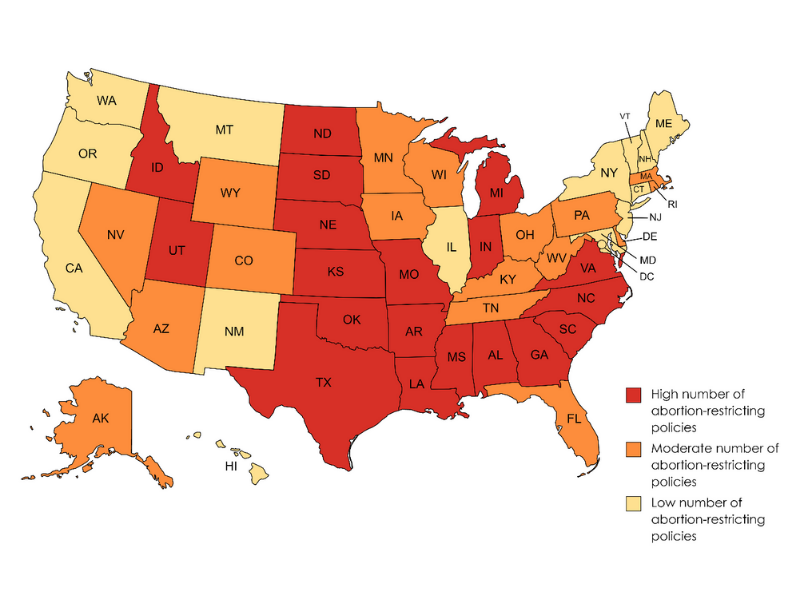Study finds higher maternal mortality rates in states with more abortion restrictions

States with more restrictive abortion policy climate have higher total maternal mortality, measured as a death during pregnancy or within one year following the end of a pregnancy, a recent study conducted by a team of Tulane researchers finds.
The US maternal mortality rates remain consistently higher compared to other wealthy countries. Concurrently, the past decades have witnessed an increasing passage of policies and regulations restricting access to abortion care across many states, despite abortion being legal since Roe v. Wade (1973). As a result, access to abortion care varies greatly across the US, with six states having only one abortion clinic in operation.
Using the national maternal mortality data accessed from the National Center for Health Statistics, the researchers examined the associations between the state abortion policy context in 2015 and maternal death during 2015-2018. The state abortion policy climate was assessed by compiling an abortion policy composite index of eight abortion restrictions (e.g. gestational age limits, ultrasound requirements, mandatory counseling and waiting periods, insurance coverage limitations and targeted regulations on abortion providers).
The researchers found that states with the higher score of abortion policy composite index had a 7% increase in total maternal mortality compared with states with lower abortion policy composite index. Among individual abortion policies, states with a licensed physician requirement had a 51% higher total maternal mortality and a 35% higher maternal mortality (i.e. a death during pregnancy or within 42 days of being pregnant), and restrictions on state Medicaid funding for abortion was associated with a 29% higher total maternal mortality.
“It is critically important that state-level policies related to women’s access to comprehensive reproductive health care services, including abortion, are evidence-based and guided by the primary goal of improving women’s health and reducing maternal mortality,”said Dovile Vilda, research assistant professor at the Department of Social, Behavioral and Population Sciences and a lead author on the study. “Our study provides evidence that decreasing the number of abortion restrictions across the states may reduce incidence of death during pregnancy and postpartum among all women in the US.”
The study, published online in the “First look” area of American Journal of Public Health, was conducted by a team of Tulane researchers from Tulane's School of Public Health and Tropical Medicine, Newcomb Institute, Department of Health Policy and Management, and Mary Amelia Center for Women’s Health Equity Research at the Department of Social, Behavioral, and Population Sciences.
Citation: Vilda, D., Wallace, M., Daniel, C., Goldin Evans, M., Stoecker, C., & Theall, K. State abortion policies and maternal death in the US, 2015-2018. Forthcoming September 2021. American Journal of Public Health.
